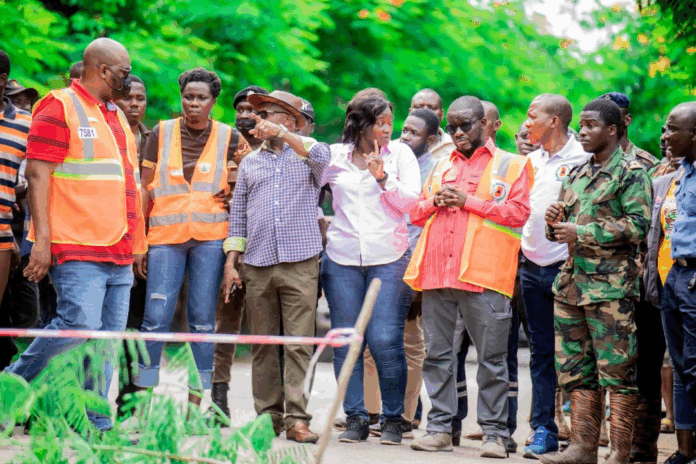A new academic study by the Department of Geography and Regional Planning of the Faculty of Social Sciences, College of Humanities and Legal Studies, University of Cape Coast has revealed that poor coordination among disaster management agencies is severely limiting Accra’s capacity to respond effectively to floods, fires, epidemics, and other emergencies.
Despite the National Disaster Management Organization (NADMO) serving as the lead institution, weak collaboration with Metropolitan, Municipal, and District Assemblies (MMDAs), health services, security agencies and community actors continues to expose residents and property to heightened risks.
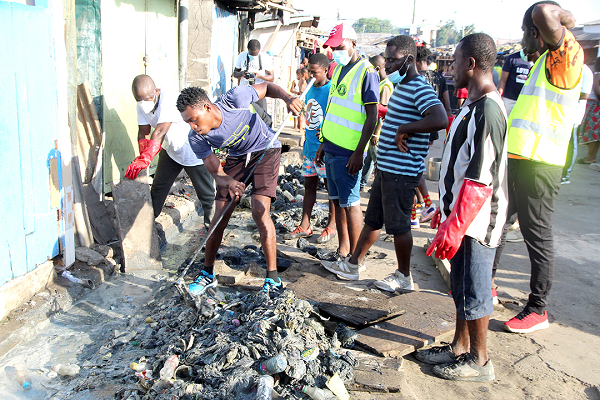
The study, conducted as part of a systematic review of disaster management practices in Ghana and Sub-Saharan Africa, focused on Accra—the nation’s most urbanized and disaster-prone metropolis.
With its rapidly expanding population, unplanned settlements, and fragile drainage infrastructure, Accra remains highly vulnerable to recurring floods and urban emergencies. Researchers found that the institutional framework for managing disasters in the city is fragmented, characterized by overlapping mandates and insufficient coordination among key stakeholders.
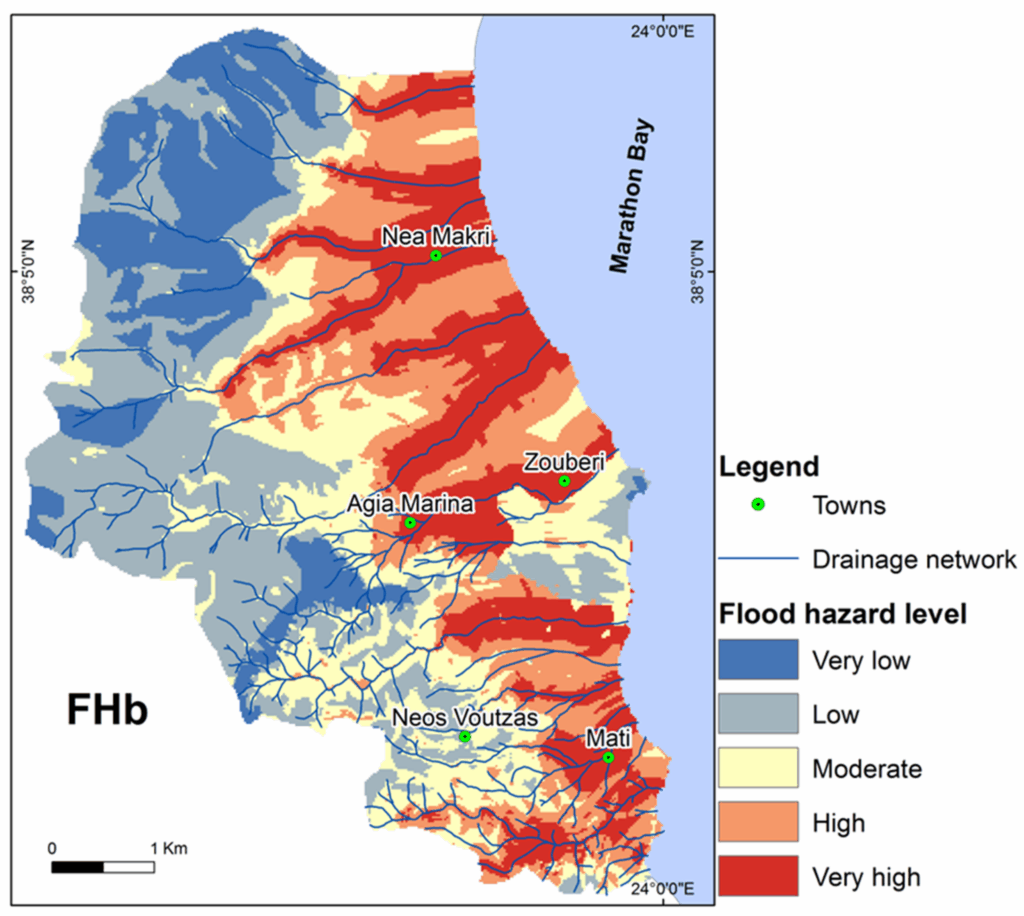
According to the study, these structural weaknesses are compounded by poor communication systems and unclear command hierarchies during disaster response operations.
“When multiple agencies are expected to work together without a defined coordination mechanism, the outcome is often confusion, delays, and duplication of effort,” the report observed. This situation, experts argue, results in inefficient resource use and inadequate service delivery when disasters strike.
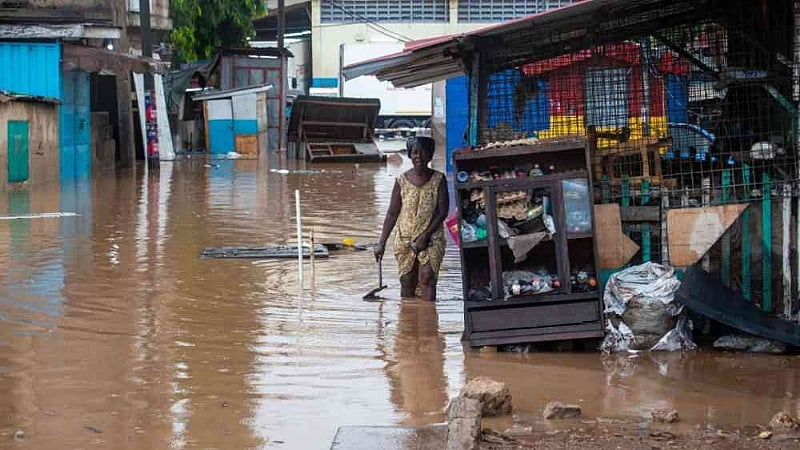
Expert Opinions
Experts in disaster management and public policy have echoed the findings. Dr. Kwaku Amponsah, a lecturer in environmental management at the University of Ghana, noted that “Accra’s disaster response system suffers from an institutional coordination deficit.
NADMO’s success depends largely on how well it works with the police, health sector, and local authorities—not just on the number of relief items distributed.” Similarly, Ms. Afua Osei, a disaster risk reduction specialist with the United Nations Development Programme (UNDP) in Ghana, emphasized that strengthening inter-agency communication and data-sharing systems is critical. “Disasters in urban centers like Accra are multi-dimensional, and no single agency can manage them effectively in isolation,” she said.

Community Impact and Observations
Residents in flood-prone areas such as Alajo, Adabraka, and Weija have witnessed the consequences of weak coordination firsthand. During recent flooding incidents, many communities reported slow response times and unequal relief distribution.
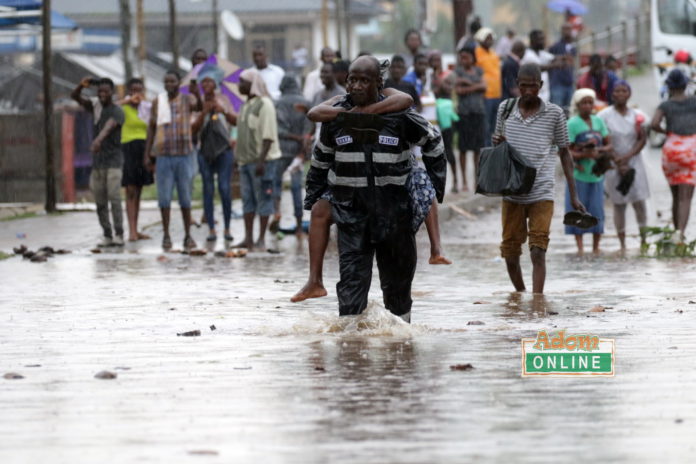
Health officials also expressed frustration over inadequate coordination with NADMO during the management of waterborne diseases and post-flood sanitation efforts. Local Assembly officials admitted that although disaster risk reduction is part of their mandate, it remains poorly integrated into their planning processes due to limited technical capacity and resources.
Policy and Institutional Gaps
The research also found that while Ghana has national policies and frameworks guiding disaster management—such as the National Disaster Management Plan and the National Climate Change Policy—their implementation at the city level remains inconsistent.
District Assemblies in the Greater Accra Region struggle to mainstream disaster risk reduction into their Medium-Term Development Plans. Moreover, enforcement of building codes and land-use regulations remains weak, allowing construction in flood-prone zones to continue unabated.
The Way Forward
Experts warn that without urgent reforms, Accra’s growing population, coupled with climate change and rapid urbanization, will exacerbate the city’s vulnerability to disasters. The study calls for disaster risk reduction to be embedded into urban governance and development planning.
It recommends strengthening inter-agency communication systems, establishing clearer lines of authority during emergency operations, and investing in research and technology such as Geographic Information Systems (GIS) and early warning systems to improve preparedness.
“The effectiveness of NADMO and its partners depends not only on funding and logistics but also on how well they coordinate and share information,” the study concludes. “Improved collaboration, clear leadership, and strong accountability frameworks are essential if Accra is to build resilience and protect its citizens from future disasters.”
Sources:
Martin Ewuah Amoah, Jacob Aryeetey, Joan Afua Gati, Joshua Claye and Ekow Okoso-Amaa

